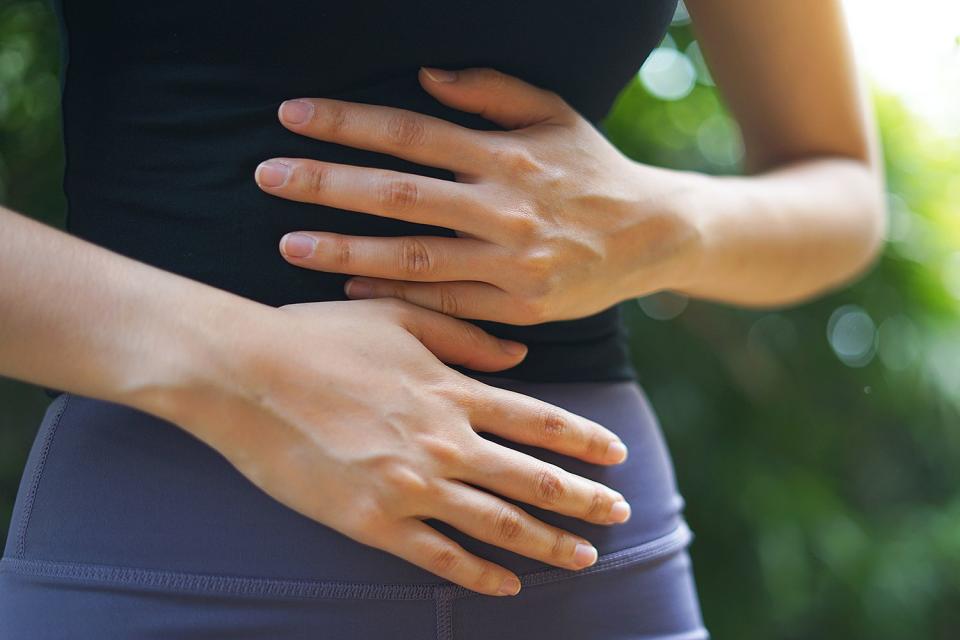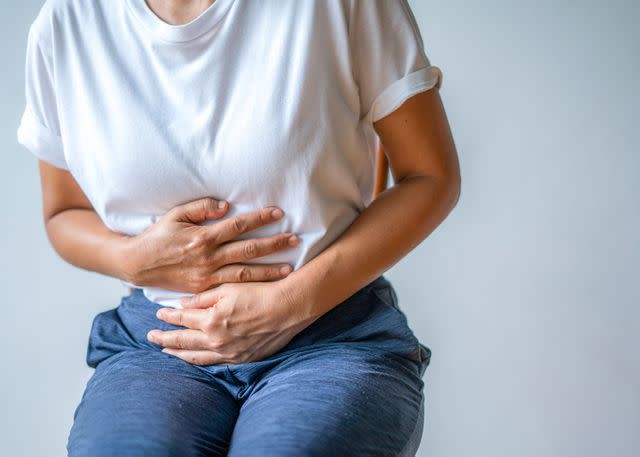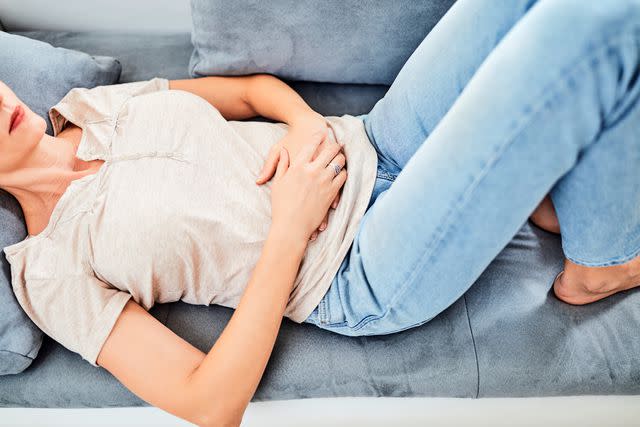Woman Gets 'DIY Poop Transplant,' Ingests Pills with Brother's Fecal Matter to Combat IBS Symptoms
- Oops!Something went wrong.Please try again later.
In a new Netflix documentary, Danielle Koepke attempts to rebalance the bacteria in her gut by ingesting fecal transplant pills from her brother's stools

Getty
Stock photo of woman with stomach ache.Daniell Koepke is recounting her experience with fecal microbiota transplant, or DIY poop transplant, after struggling for years with irritable bowel syndrome.
In Netflix's new documentary Hack Your Health: The Secrets of Your Gut, Koepke said that she began experiencing indigestion, stabbing pains from trapped gas, and severe constipation during her college years.
"It’s really hard for me to remember what it was like to eat food before it became associated with anxiety and pain and discomfort,” Koepke, a doctoral student in clinical psychology, said in the film.
Never miss a story — sign up for PEOPLE's free daily newsletter to stay up-to-date on the best of what PEOPLE has to offer, from juicy celebrity news to compelling human interest stories.

Getty
Getty image of woman with stomach ache.Related: Adding Table Salt to Your Food May Increase Stomach Cancer Risk by 40%
After five years of doctor's appointments and antibiotics that didn't work, Koepke turned to fecal microbiota transplant. According to Johns Hopkins Medicine, this procedure involves collecting feces, also known as stool or poop, from a healthy donor and introducing them into an ill patient’s gastrointestinal tract.
Transferring fecal bacteria and other microbes from a healthy individual to a someone who is ill can help restore the balance of bacteria in the intestines.
"With fecal microbiome transplants, there is really compelling evidence, but the science is still developing. We're still working on if it actually has benefits for wider populations and if the benefit is long-lasting," Jack Gilbert, a microbial ecologist at UC San Diego, said in the documentary.

The PEOPLE Puzzler crossword is here! How quickly can you solve it? Play now!
While initially turned off by the suggestion, Koepke, who felt like she had exhausted all other options, proceeded with the procedure. Initially, she ingested fecal transplant pills from her brother's donated stools.
Prospective donors should not have had any antibiotic exposure in the past six months, according to Johns Hopkins Medicine. They should not be immunocompromised or at risk for infectious diseases, and should not live with any chronic gastrointestinal disorders, such as inflammatory bowel disease.
After starting the procedure, Koepke gained weight and suffered hormonal acne similar to her brother's. Gilbert later informed Business Insider that bacteria present on a patient's stool can influence the recipient's body.
Subsequently, Koepke opted to switch donors and utilized stool from her boyfriend. However, shortly after, she experienced depression akin to her boyfriend's. Reflecting on this, she remarked, "Over time, I realized my depression was worse than it's ever been in my life."
Later, Koepke went back to using her brother's stool, noting in the documentary that her depression went away within the week.
For more People news, make sure to sign up for our newsletter!
Read the original article on People.

